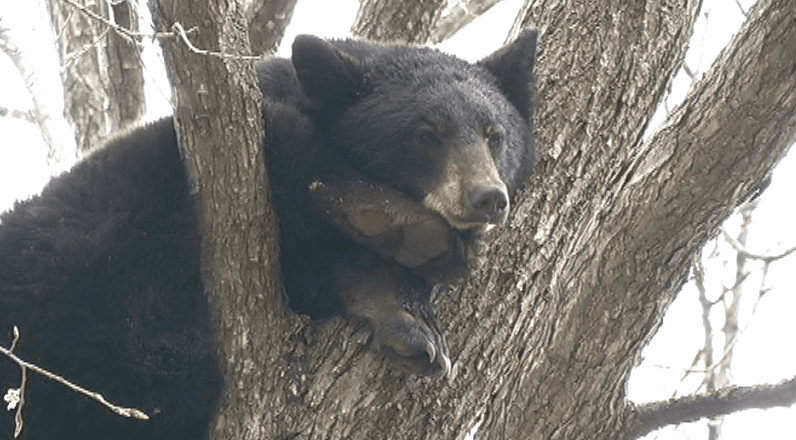Superior National Forest managers urge visitors to be Bear-Aware
[anvplayer video=”5191578″ station=”998130″]
Superior National forest managers are urging visitors to be bear-aware to reduce the potential for unwanted encounters. The following areas are seeing an increase in bear-human conflict reports:
Gunflint-Grand Marais area
- Clearwater Lake
- Rose Lake
- Duncan Lake
- Alder Lake
- Moon Lake
- Caribou Lake
LaCroix–Cook area
- Agnus Lake
“Those are just sightings where they’ve come into a campsite or they’ve been seen at a trailhead and, you know, a couple of them where the bear has actually grabbed hold of a pack and pulled it away,” said Public Affairs Officer Joy Vandrie.
There are several things that people can do to reduce the potential for unwanted bear encounters. When camping, all food, camping equipment, and garbage should be stored out of reach of bears or in a certified bear-resistant container.
Superior National Forest Wildlife Biologist, Cheron Ferland, points out that “once a bear is ‘rewarded’ with human food or garbage, it is likely to become habituated and continue the behavior, which could ultimately lead to the bear being dispatched.”
Be aware that bears may also find anything with a strong or sweet odor attractive such as toothpaste, lip balm, scented personal products, sunscreen, clothing with food odor, etc. A bear can smell food wrappers inside a tent. A clean campsite is much less likely to catch the attention of bears in the area. Bears are excellent swimmers; so, precautions must be taken on island sites as well.

(WDIO)
Leaving food unguarded is another mistake made by campers.
“We have a lot of portages across the Superior where you’re reporting from one body of water to the next. Probably make sure that you have your food with somebody the whole entire time. Don’t leave it at a portage,” advised Vandrie. “Bear families are pretty sneaky and they’re generationally teaching each other.”
Additionally, Superior National Forest managers recommend these precautions:
- After each meal, the dishes should be washed immediately at least 200 feet away from the sleeping area and water source. Consider a small collapsible pail to help carry water. Keep camp stoves away from the tent area.
- Toiletries, food and garbage should be placed in a CERTIFIED bear-resistant container. The Interagency Grizzly Bear Committee (IGBC) has a certified list of products. “Blue barrels” have been proven to NOT be bear resistant and are NOT on the certified list. Additionally, it is best to suspend the food container out of reach by hanging it from a high line between two trees. The container should be located at least twelve feet above ground and at least six feet from the trees on either side. Protect the trees in the process with wide flat straps.
- If in a dispersed site or developed campground, it is best to store these items in a hard-sided vehicle.
- Do not count on a cooler to protect your food, unless it is on the IGBC Certified Bear Resistant Products List. Most coolers are not bear-resistant containers, but some can be modified for bear resistance. Bears can smell bottled beverages and food in plastic coolers from a few miles away. Once a bear is rewarded with food or something sweet in one cooler or tent, it learns to bite and tear into other tents and coolers.
- Dispose of fish remains by traveling at least 200 feet away from campsites, trails, portages and shorelines.
- Avoid leaving food unguarded at the canoe/boat landing or at the end of a portage. If it is not in a bear-resistant container, it is an easy target and can train a bear to frequent high-use areas. Remember, bears swim from island to island.
- If you do encounter a bear, most will be scared off if you make noise (shout, bang pots or throw fist-sized rocks at the bear, etc.). A very persistent bear may be discouraged by spraying pepper spray into its eyes.
- For more information on hanging equipment techniques and precautions visit the Superior National Forest Bear Awareness Website at: Camping and Picnicking in Bear Country
For homes in bear country, it is recommended to keep pet food stored in the house, remove bird feeders at night, and store garbage in a building or bear-resistant trash containers.
To learn more about safe living and camping or hiking in bear country, check out: Be Bear Aware.